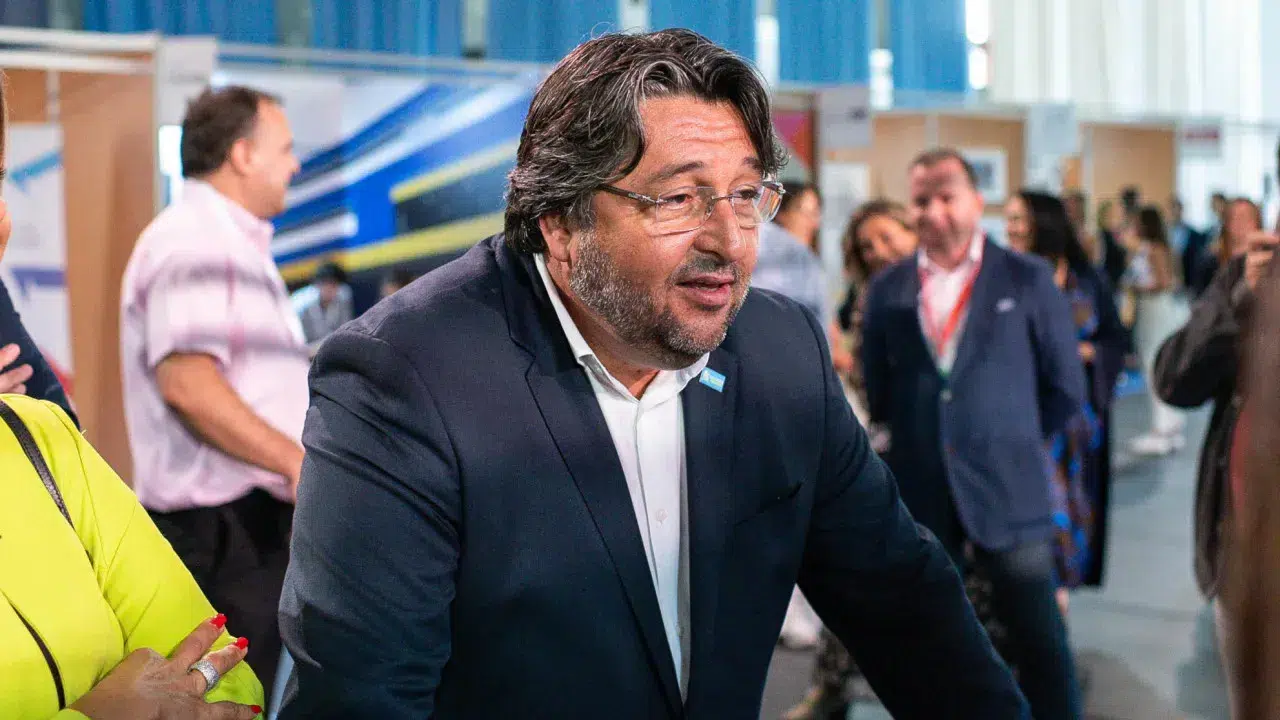
Israel’s participation in the 69th edition of the Eurovision Song Contest, held in Basel, Switzerland, sparked tensions between the Spanish public broadcaster RTVE and the European Broadcasting Union (EBU), involving even the Spanish Prime Minister Pedro Sánchez. The controversy unfolded over comments and actions related to the presence of Israel in the competition.
Criticism emerged in April, a month before the contest, when RTVE called for a discussion about the Israeli broadcaster KAN’s participation, citing “concerns raised by several civil society groups in Spain” regarding the “situation in Gaza.”
This request was reiterated during the second semi-final of Eurovision last Thursday. During the introduction of Israeli contestant Yuval Raphael, Spanish commentators Tony Aguilar and Julia Varela highlighted RTVE’s formal request for a debate on Israel’s continued participation. They emphasized the “over 50,000” Palestinian deaths, including 15,000 children.
El mensaje de RTVE antes de #Eurovision2025: “Frente a los derechos humanos, el silencio no es una opción. Paz y justicia para Palestina” #EurovisionRTVE https://t.co/x3mkEt0tbW pic.twitter.com/epV46XPkV7
— RTVE Noticias (@rtvenoticias) May 17, 2025
In response, the EBU warned RTVE that it would be fined if such statements were repeated during Saturday’s final. In a letter addressed to the head of the Spanish delegation, Ana María Bordas, the organization reminded RTVE that Eurovision’s rules “prohibit political statements that could compromise the contest’s neutrality.”
“The number of victims has no place in an apolitical entertainment program, whose motto ‘United by Music’ embodies our commitment to unity,” read the letter, to which the Spanish press had access.
Despite the EBU’s warning, before Saturday’s final, the Spanish broadcaster posted on its social media and issued a message against a black background, stating: “In the face of human rights, silence is not an option. Peace and justice for Palestine.”
Later, the Spanish Prime Minister Pedro Sánchez called for Israel’s exclusion from Eurovision and other international competitions, comparing it to Russia’s exclusion following the invasion of Ukraine in 2022.
“We cannot allow double standards,” stated Sánchez, highlighting that “no one was shocked” when Russia was excluded from international sports competitions or initiatives like Eurovision.
In addition to the presence, the public vote from Spain, which awarded Israel with 12 points—the maximum—faced criticism and led RTVE to request an audit of the televote.
The Israeli Minister of Diaspora Affairs and Combating Antisemitism considered the Spanish public’s televote score a “slap” in the face of the Spanish Prime Minister.
On social network X, Amichai Chikli, in response to the 12 points given to the Israeli song by the Spanish televote, wrote: “Sánchez, it seems the Spaniards have spoken, and the slap in the face was heard here in Jerusalem”.
Sanchez, parece que los españoles han hablado y la bofetada la hemos escuchado aquí en Jerusalén.@sanchezcastejon pic.twitter.com/hRYC3bsII6
— עמיחי שיקלי – Amichai Chikli (@AmichaiChikli) May 18, 2025
Additionally, the Flemish public broadcaster VRT from Belgium demanded “full transparency” on the voting system and rules and questioned whether to participate in future editions of the contest.
The broadcaster interrupted its broadcast during Israel’s performance in the final, as they had done in 2024, displaying a black screen criticizing human rights violations in Gaza, media silence, and calling for a ceasefire in the Gaza Strip.
La TV belga VRT durante l’esibizione dell’artista Israeliana. (Sì, ho tradotto con google translate) #eurovision #escita pic.twitter.com/kKuXvMYKFg
— LALLERO (@see_lallero) May 17, 2025
The controversy follows Israel’s second-place finish in the contest, closely trailing Austria, which won in the final moments amid disputes connected to the severe humanitarian situation in the Gaza Strip.
The Israeli performance received only 60 points from the professional jury, placing fifteenth, but also gathered 297 points from the popular vote, which accounts for 50% of the final result.
In contrast, Austria received 258 points from the jury and 178 points from the public.
Related: “You’re wonderful”. Netanyahu congratulates Israel’s representative at Eurovision




